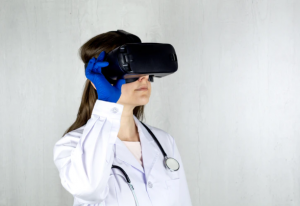Technology is a massive portion of health care since it’s the driving force behind any advancement, which may change countless lives and enhance them by trying something new. The speed of the current inventions is growing. Most need to agree that technology helps us practice medication and present new therapies that enable us to utilize new instruments, save lives, and gather information.
In the following guide, we’ll show you a few of the ways advanced technologies are altering the health and we ought to adopt it if it’s all about information-sharing or helping in high-risk operations. Let us check them out today.
Virtual Healthcare
 Virtual Healthcare can also be called telehealth and telemedicine since it enables patients to share important information with their physicians and track their health in your home, like using a stethoscope. A number of the greatest stethoscopes are easily purchased online. This type of health care also enables physicians and doctors to share their understanding of video conventions or mobile programs. In years past, that was impossible to envision. Still, nowadays, you’ll be able to join with a physician in another portion of the planet and learn about their innovative remedies and medicaments. This health care may save the U.S. health system billions of dollars each year; nonetheless, losing personal contact with the physician and face visits may also worsen the standard of care.
Virtual Healthcare can also be called telehealth and telemedicine since it enables patients to share important information with their physicians and track their health in your home, like using a stethoscope. A number of the greatest stethoscopes are easily purchased online. This type of health care also enables physicians and doctors to share their understanding of video conventions or mobile programs. In years past, that was impossible to envision. Still, nowadays, you’ll be able to join with a physician in another portion of the planet and learn about their innovative remedies and medicaments. This health care may save the U.S. health system billions of dollars each year; nonetheless, losing personal contact with the physician and face visits may also worsen the standard of care.
Artificial Intelligence
Artificial intelligence or A.I. is gradually being used in the health system, particularly in diagnosing strokes, eye disorders, heart problems, skin cancer, and other problems. A.I. remains not a high priority and its execution might be of slow advancement, largely due to the price (just 12 percent of health programs reported they’d implemented A.I. for cancer care or were likely to execute in 2018).
As stated by the reports, a number of the most typical areas which will be impacted by A.I. are clinical decision aid, public wellness, illness control, readmissions, and medical costs/health program. There’s a general anxiety thaA.I. machines will probably substitute radiologists. Still, alternatively, A.I. might improve physicians’ and patients’ connections by freeing up time that physicians don’t have much, thus letting them spend more time on sufferers.
Robot-Assisted Surgery
Robot-assisted operation is a sort of a surgical procedure that’s done by autonomous systems. It was designed primarily to aid physicians with minimally-invasive surgeries and also to boost the surgeons’ capabilities. A physician would usually utilize the so-called telemanipulator or a pc controller that could move the robotic arms.
By way of instance, laparoscopic procedures incorporate small incisions that may be carried out in this manner only because they don’t require blood transfusions. A number of these technologies are still in progress and several men and women are doubtful about their participation in health care, but they’re progressing quickly. They may genuinely help save countless lives in the not too distant future.


